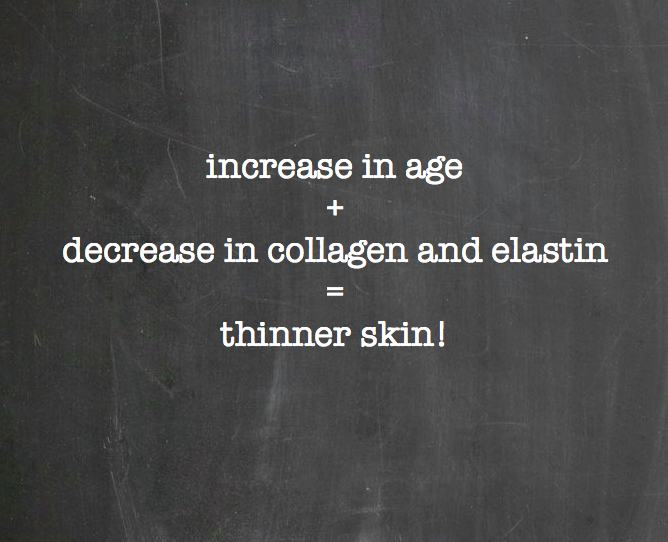The Plat du Jour is anti-aging with a side of peptides…forget the calories and Bon Appetit !
This new kid has been around the anti-aging skin care block a few times.
Increasingly peptides are gaining in popularity and momentum driven by consumer demand for results driven skin care.
What are peptides and can the anti-aging claims made by cosmeceutical skin care companies that produce synthetic forms of these important compounds be supported by empirical evidence?
There are more than 25 different peptides routinely found in skin care products, all purporting to have different signallng roles in our skin.
Adding to the confusion is the polysyllabic ingredients listed on skin care labels. With names like palmitoyl oligopeptide and copper GHK/AHK, we scan the list looking for familiar parts of these hieroglyphics, not understanding their mechanism of action or even how to pronounce them correctly.
Without a science background it’s like looking for a corner in a round room…so its easy to understand how sophisticated marketing can bamboozle & persuade!
What are they?
Peptides behave as cell communicators.
Peptides are short chains of amino acids, which form the building blocks of proteins.
These chains are found in the basement layer of the skin, which divides and anchors the epidermis and dermis.
This important layer forms the supporting structure of the dermal matrix and is where collagen and elastin are synthesised.
Much ado about peptides….
The hyperbole surrounding peptides relates to their ability to communicate at the cellular level in both stimulating and repairing cells that are injured or degenerate as a normal part of the aging process.
Bio active peptides are naturally occurring in the skin and function at a cellular level promoting wound healing, photoprotection, photo-aging, as an inflammatory mediator and in the synthesis of collagen and elastin-the supporting structures of our skin.
An age-old equation….
Around the age of 40 our bodies’ ability to produce collagen and elastin slows, creating a thinner, weaker and less pliable dermal layer.
Though I may hear you cheer at “thinner” I warn you …it may be an unequal trade- weight loss for wrinkles!
‘Swimming with sharks’ or ‘the great white hope of anti-aging‘ ?
Cosmeceutical companies manufacturing synthetic peptides argue that in replicating a peptide, which harnesses and mimics the biological processes of their ‘peptide sisters’, they are creating a more stable and controllable peptide!
One of the synthetic peptides being produced by cosmetic chemical manufacturer Sederma is called Matrixyl . Matrixyl is a combination of 5 peptides all described as aiding in the synthesis of collagen and elastin.
Sederma claim that the 5 peptides restructure the dermal matrix by signaling new collagen and elastin to be produced.
Good news but how do we encourage the skin to absorb it?
Nanotechnology may be the answer!
The smaller the particle the better the penetration but that’s not the only thing to consider. The formulation or delivery system of the product needs to be able to negotiate both the skin’s acid mantle, and the normal barrier functions of the skin for it to be absorbed. Concentration levels of peptides in the product are also important, as absorption levels needed to affect cell communication may not be able to be achieved to produce effective results in the skin.
Like any new development in skincare the debate on the efficacy of peptides in skincare remain lively with little conclusive evidence supporting their use topically. Not to be overlooked is the anecdotal evidence of the happy consumers who have observed a reduction in fine lines and wrinkles after using products containing peptides.
‘What mankind can dream research and technology can achieve’
C Walter Lillihei
Should cosmeceutical companies be responsible if their products don’t meet their claims?
I’d love to hear your thoughts?
ASkinSolutions x







